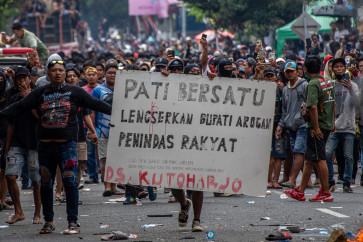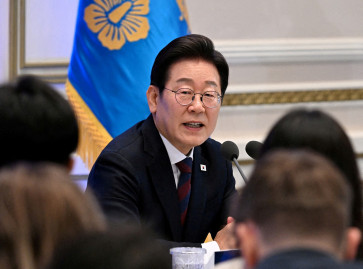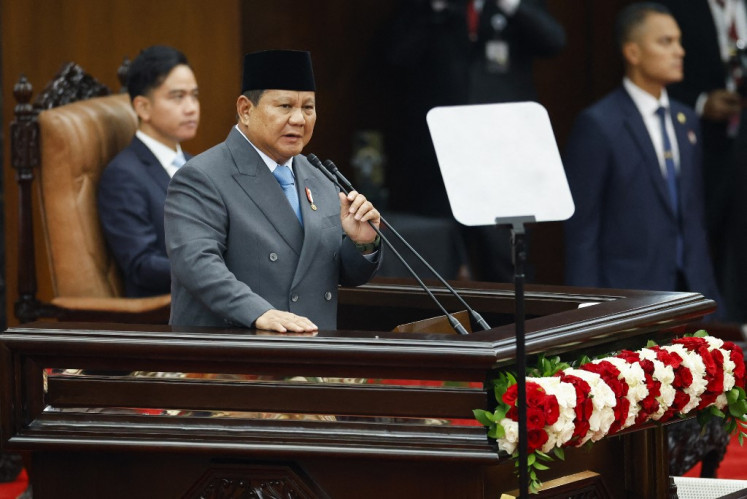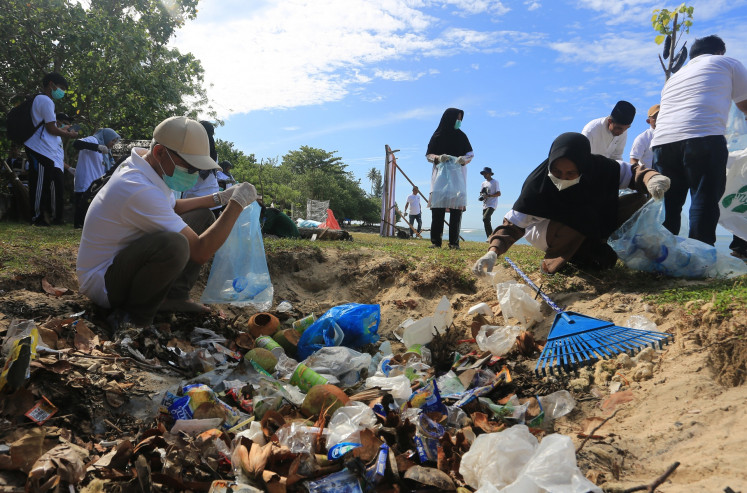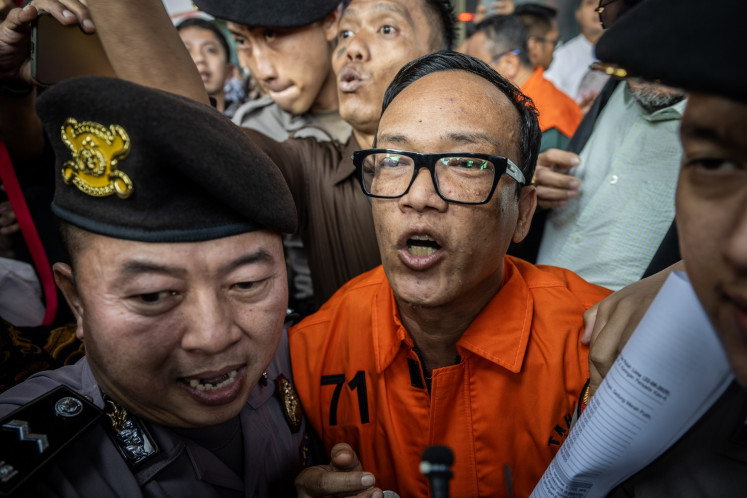Popular Reads
Top Results
Can't find what you're looking for?
View all search resultsPopular Reads
Top Results
Can't find what you're looking for?
View all search resultsJokowi 'must do more' on intolerance: Komnas HAM
Reconciliation: Religious leaders make peace after the Tolikara incident in Papua
Change text size
Gift Premium Articles
to Anyone
Reconciliation: Religious leaders make peace after the Tolikara incident in Papua. (tempo.co)
The National Commission on Human Rights (Komnas HAM)'s freedom of religion and belief desk coordinator Jayadi Damanik has urged President Joko 'Jokowi' Widodo and his administration to take action against local administrations' moves to enact bylaws seen to have allowed and promoted religious intolerance.
Jayadi pointed out that the City Hall in Bogor, West Java, along with the city itself, had recently been named Indonesia's most religiously intolerant place by human rights advocacy group Setara Institute.
'President Jokowi's office is a mere five-minute walk from the Bogor City Hall, and it was at this office that Bogor Mayor Bima Arya and his fellow officials agreed to prohibit members of the Shia community from celebrating the religious feast day of Asyura last month,' Jayadi said on Monday.
He was speaking during a seminar held to launch a guidebook for provincial administrations on how to protect citizens' rights to freedom of religion and faith.
The guidebook, entitled Regional Administrations and the Protection of Freedom of Religion or Belief, was a result of a collaborative study involving the Law and Human Rights Ministry's directorate general of human rights, the Religious Affairs Ministry's Center of Religious Harmony (PKUB), the Human Rights Working Group (HRWG) and the Asia Foundation.
Jayadi said that although the guidebook was aimed at Indonesia's regional administrations, it also could be used by the central government.
Many officials of both regional and central administrations, speaking at national and international forums, had not been completely honest about incidents of intolerance that had taken place in the country, he said.
The activist added that even when officials admitted that there had been religious violations, they usually at the same time made defensive statements, insisting that Indonesia was a tolerant nation.
The head of religious institution development at the Religious Affairs Ministry's PKUB, Wawan Djunaedi, explained that the government had examined religious intolerance cases in Indonesia and turned study results into statistical data. In over 500 regencies and municipalities in the country, cases of sectarian violence involved only 0.01 percent of the population, he said.
'The government strongly disagrees with any act of religious intolerance and is always striving to reduce negative notions currently affecting religious followers while at the same time, also striving to promote tolerance within society,' said Wawan. (ebf)


